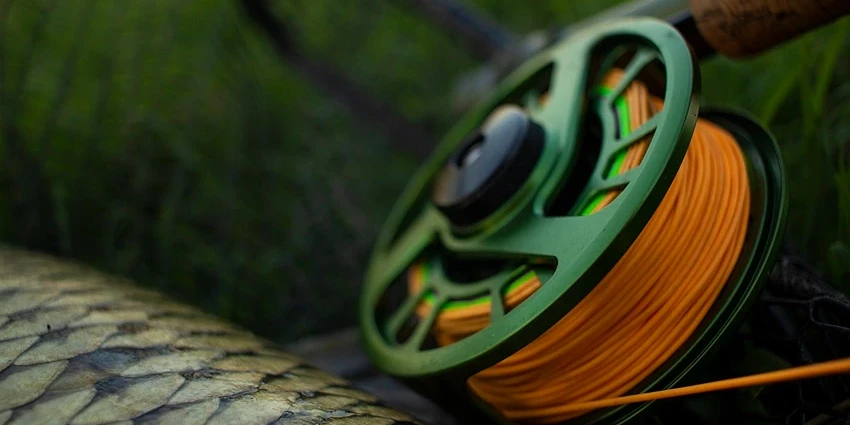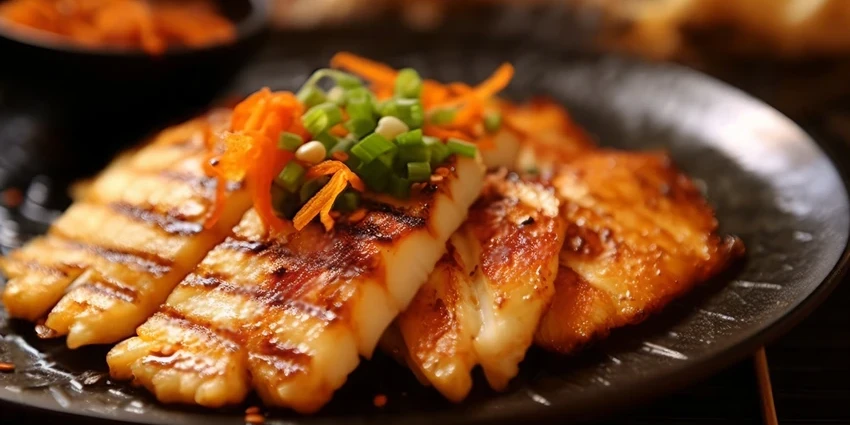All products were chosen independently by our editorial team. This review contains affiliate links and we may receive a commission for purchases made. Please read our affiliates FAQ page to find out more.
Jump to:
Can You Eat Smallmouth Bass?
Yes, smallmouth bass is edible and appreciated for its mild flavor and firm texture. Anglers commonly grill, bake, or fry smallmouth bass. Adhering to fishing regulations and releasing larger specimens for conservation contributes to sustainable harvesting practices, ensuring a continued supply of this freshwater fish.
Key Takeaways:
- Edibility and Taste: Smallmouth bass is edible, offering a unique taste and nutritional value.
- Health Considerations: It’s safe to consume, but awareness of potential health risks is crucial.
- Preparation Tips: Proper cleaning and cooking methods enhance its culinary value.
- Regulatory Insights: Understanding state regulations ensures sustainable and legal fishing practices.
Smallmouth bass, a species revered by anglers for its spirited fight, is not just a trophy fish but also a potential culinary delight. This article delves into the various aspects of consuming smallmouth bass, from its edibility and preparation to health considerations and regulations.
Introduction to Smallmouth Bass
Smallmouth bass, scientifically known as Micropterus dolomieu, is a freshwater fish native to North America. It’s highly regarded in the fishing community for its fighting spirit and is a popular target for sport fishing.
Can You Eat Smallmouth Bass?
Yes, smallmouth bass is not only edible but also a delightful addition to the dinner table. It offers a distinctive taste that is milder and less fishy compared to other freshwater fish, making it a favorite among many.
Nutritional Value and Taste Profile
Smallmouth bass is a lean source of protein and contains essential nutrients like omega-3 fatty acids. Its flesh is firm, with a slightly flaky texture, ideal for various cooking methods.
Health Considerations When Eating Smallmouth Bass
While smallmouth bass is generally safe to eat, there are health considerations to keep in mind.
FDA Classification and Safety
The FDA classifies smallmouth bass as safe for consumption. However, like all fish, it can contain contaminants like mercury, so moderation is key.
Potential Health Risks and Benefits
- Mercury Levels: Smallmouth bass can accumulate mercury, so it’s important to check local advisories.
- Nutritional Benefits: It’s a good source of lean protein and omega-3 fatty acids, beneficial for heart health.
Preparing Smallmouth Bass for Consumption
Proper preparation is crucial for enjoying smallmouth bass.
Cleaning and Cooking Methods
- Cleaning: Remove scales, gut, and clean thoroughly.
- Cooking: Can be grilled, baked, or fried. Marinating enhances its flavor.
Recommended Recipes and Cooking Tips
- Grilling: Season with herbs and lemon for a light, flavorful dish.
- Baking: Combine with vegetables for a healthy meal.
- Frying: Lightly bread for a crispy texture.
Table 1: Nutritional Value of Smallmouth Bass
| Nutrient | Amount per 100g |
| Protein | 20g |
| Fat | 3g |
| Omega-3 | 0.5g |
Regulations and Sustainability
Understanding and adhering to regulations is crucial for sustainable fishing practices.
State Regulations on Catching and Consuming
Each state has its own regulations regarding the catching and consumption of smallmouth bass. It’s important to check local guidelines for size limits, catch limits, and seasons.
Sustainability and Environmental Impact
- Catch and Release: Practicing catch and release helps maintain the population.
- Habitat Conservation: Protecting their natural habitat ensures a sustainable population.
Table 2: State Regulations for Smallmouth Bass Fishing
| State | Size Limit | Daily Bag Limit |
| Michigan | 14 inches | 5 |
| Pennsylvania | 12 inches | 6 |
| Tennessee | 18 inches | 1 |
Culinary Delights: Smallmouth Bass in Cuisine
Smallmouth bass is not just a sport fish but also a versatile ingredient in the kitchen.
Culinary Uses Worldwide
Globally, smallmouth bass is used in various cuisines, from American to Asian, often grilled, baked, or used in stews.
Pairing with Other Ingredients
- Herbs and Spices: Complements well with dill, garlic, and lemon.
- Vegetables: Pairs well with asparagus, potatoes, and greens.
Expert Angler Tips on Catching Smallmouth Bass
Catching smallmouth bass requires skill and knowledge.
Best Practices for Fishing Smallmouth Bass
- Tackle and Bait: Use light to medium tackle and live bait like crayfish or artificial lures.
- Technique: Focus on areas with rocks or structures where bass hide.
Seasonal and Geographical Considerations
- Spring and Fall: Best seasons for active bass.
- Locations: Rivers and lakes with clear, cool water.
Table 3: Ideal Fishing Conditions for Smallmouth Bass
| Season | Water Temperature | Preferred Locations |
| Spring | 55-65°F | Near spawning beds |
| Fall | 50-60°F | Deep water structures |
Register for our latest in-depth reviews and product round-ups from the experts
Enter your email address below to receive our twice monthly reviews emails.
By entering your details, you are agreeing to our terms and conditions and privacy policy. You can unsubscribe at any time.
FAQs on Eating Smallmouth Bass
Addressing common questions about smallmouth bass.
Yes, it’s safe when sourced from unpolluted waters and consumed in moderation.
It has a milder, less fishy taste compared to other freshwater species.
Grilling, baking, and pan-frying are excellent methods.
Additional Resources and References
For more information on smallmouth bass fishing and cooking, visit reputable sources like the American Fisheries Society and popular culinary websites.
Table 4: Nutritional Comparison of Smallmouth Bass with Other Fish
| Fish Species | Protein | Omega-3 Fatty Acids |
| Smallmouth Bass | 20g | 0.5g |
| Salmon | 25g | 2.3g |
| Trout | 19g | 1.0g |
Martin Cochran, renowned for his expertise in deep-sea fishing and marine wildlife, plays a pivotal role at Fresh Catch Daily. His adventures across various oceans have equipped him with unique insights and techniques, enriching our platform with diverse and engaging content for fishing enthusiasts.










